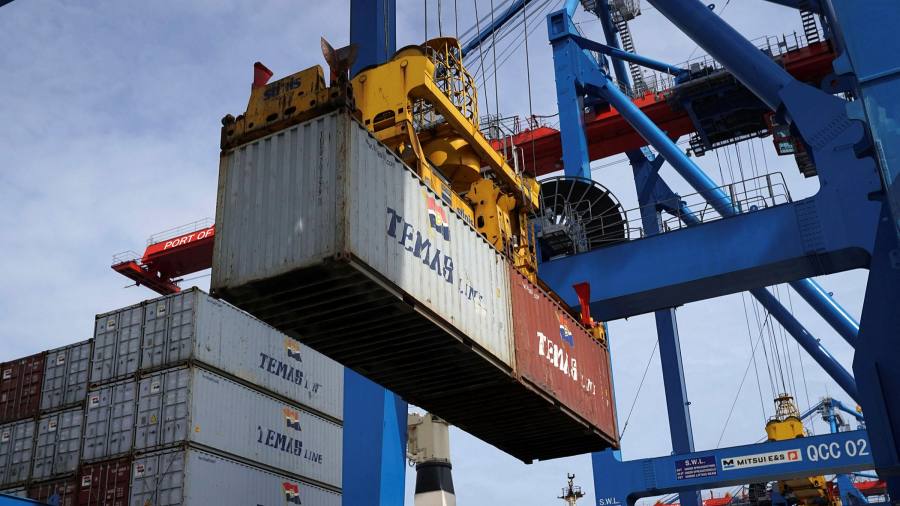
The Trade finance industry is evolving and becoming faster and more flexible to emerging technological advancements. Banks are adapting to accommodate their clients’ needs. Yet, there are trade finance facts you need to know, irrespective of the role you play in international trade. If you are starting up as an importer, exporter, or logistics, then this article is for you.
This article looks at 9 Trade Finance facts everyone must master.
Before we go there, let us mention some commonly known trade finance products out there;
- Letters of credit (L/c) are instruments issued by a bank (issuing bank) at the request of the applicant undertakes to pay the beneficiary on the presentation of complying documents.
- Bank Guarantees: They are also an undertaking by banks to the beneficiary of financial compensation in the event of failure by the applicant to perform.
- Documentary collections: this is an arrangement between the importer and exporters to involve banks in the handling of documents.
We shall discuss each of them in separate articles.
Here are 9 trade finance facts
1) Trade Finance is not always Trade-related
Trade Finance is mostly associated with trade. However, you can buy services overseas using trade finance. These services include items such as insurance and software subscriptions.
2) Trade Finance is open to all businesses
The Trade Finance market has become flexible than ever before. Large, medium and SMEs are increasingly using trade finance products. Each of these categories of companies has different requirements when it comes to trade finance products.
3) Trade Finance doesn’t always involve Cash
Trade finance transactions can actually take on different forms – known as ‘instruments’. Letters of Credit, Documentary Collections, and Bank Guarantees are examples of these instruments. This means that actual funds are not provided initially, and hence the term none-funded. They become funded once later on. For example, guarantees become funded when there is a default.
Receivable and payable finance solutions are popular solutions as well. This product is actually cash funding, allowing you to generate cash from invoice receivables.
4) Trade Finance supports International Trade as well as domestic as well
International trade is mainly associated with trade finance. Trade finance supports most of the Chinese exports destined to ports all over the world. A lot of business happens domestically in the country as well. Solutions offered by Trade instruments are applicable domestically as well. Whether you are conducting domestic trade or international trade, there are risks that you face that can be mitigated by trade finance products.
5) You can pay for online purchases using Trade Finance
Trade finance can be broadly defined as any form of funding that supports trade. The number of goods and services sold through online platforms has been on the increase. The COVID-19 pandemic has increased the value and volumes of online trading. Not surprisingly that trade finance is also used for online purchases. Some online companies such as Alibaba have partnered with banks to offer trade finance.
6) Trade Finance is becoming easier than ever for SMEs
The range of Trade finance products available has increased dramatically over the past few years, making it far easier for SMEs to access. Previously, only corporate customers would use trade finance. Banks have also developed proprietary systems. These systems help their customers access trade finance products from anywhere in the world.
7) Will Trade Finance increase significantly after 2022?
Trade finance is expected to increase beyond 2022. The world has reopened following the discovery of COVID-19 vaccines. World Trade Organization (WTO) through its October 2021 press release predicts that the trade volume growth of 10.8% in 2021 followed by a 4.7% rise in 2022. There are emerging issues that are likely to push trade volumes even higher. Climate change for example will see the demand for electric vehicles skyrocket. Consumers will increasingly demand green footprints for anything that they buy. Again, this is an area in which Trade Finance will play a pivotal role.
8) Trade finance works with Trade Credit Insurance
Trade credit insurance is a type of Trade finance product that helps protect your business from bad debtors by indemnifying you against the risk of none payment. Trade credit insurances provide cash flow to businesses for no payment by creditors. In some cases, banks offer trade finance on receivables secured by credit insurance.
As mentioned above, trade finance products support the trade of goods and services. You may be importing machinery for your factory to increase production capacity. The new capacity may require credit sales to push sales. How will you reduce the risk of none payment? Trade credit insurance is the answer.
Trade finance and trade credit insurance complement each other.

9) Trade Finance complements other Banking facilities
Banks offer different credit products to their customers. Some of them include
Overdraft facilities
This is where the bank offers a credit line where money can be withdrawn at any time. Any funds into the account repay the overdrawn monies. The amount available is restored, and the cycle keeps revolving. This is ideal to finance the operations of your company.
Term loan
Under term loans, the bank will finance you for an agreed purpose. Repayments have to be made regularly until the loan balance is nil. This is ideal for capital expenses.
Trade finance is different because it cannot support operational expenses nor can it support capital expenses. It is common therefore for banks to offer blended solutions that include Overdraft, Term Loan, and Trade Finance facilities.
Read about Structured trade finance
Russia and Ukraine conflict
Russia /Ukraine conflict has disrupted several supply chains. Russia and Ukraine combined supply about 30% of the world’s wheat requirements. European countries also depend on Russia’s gas supply. This conflict has forced many countries to start looking for alternatives. Irrespective of whichever outcome the conflict will cause, trade finance will certainly be required.
Thank you for reading this post. Now you have some knowledge of trade finance facts, we hope you will consider using the product the next time you need support in the trading business.
We recommend that you visit your bank or financial adviser before concluding your first trade finance transaction.

